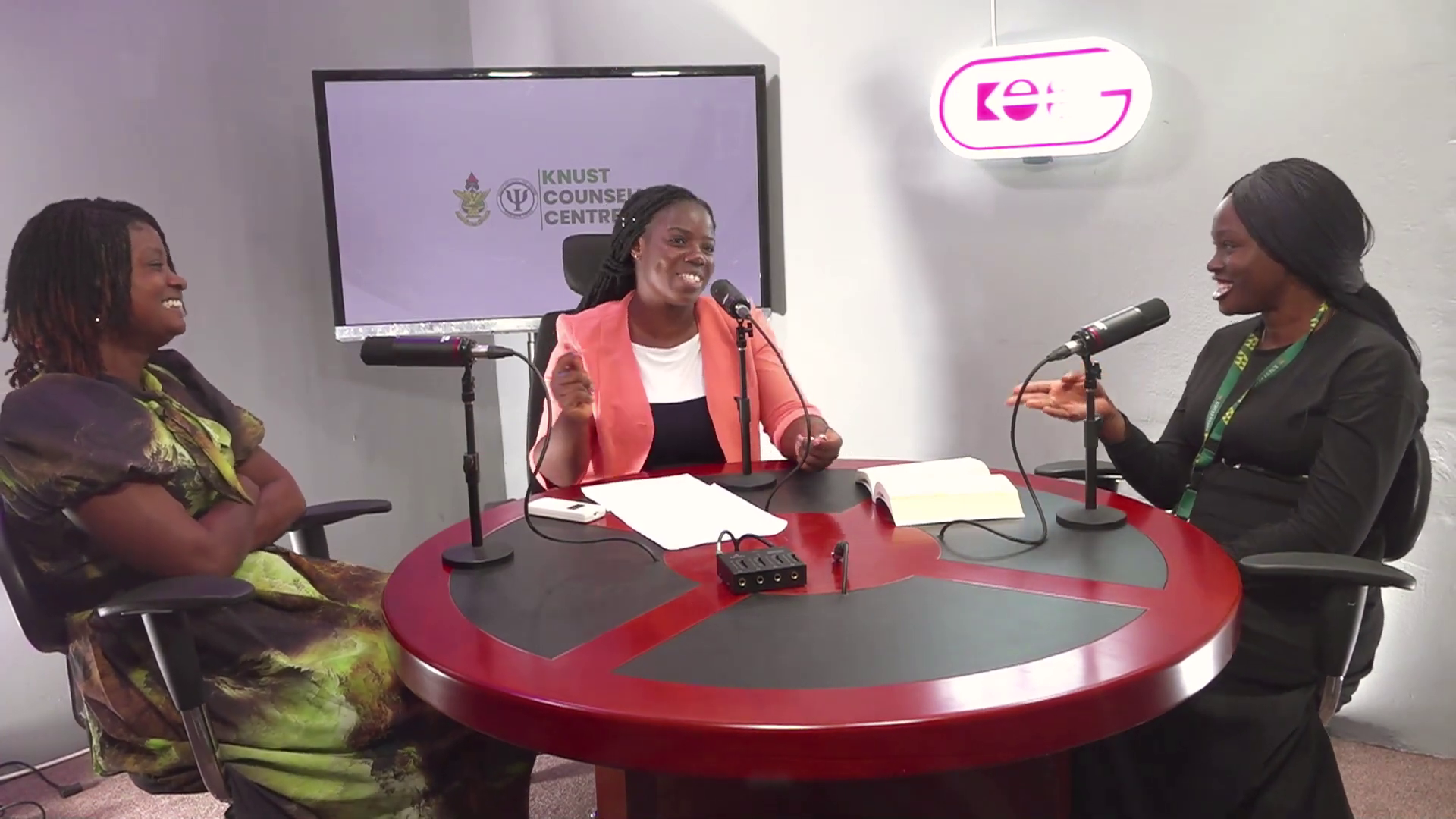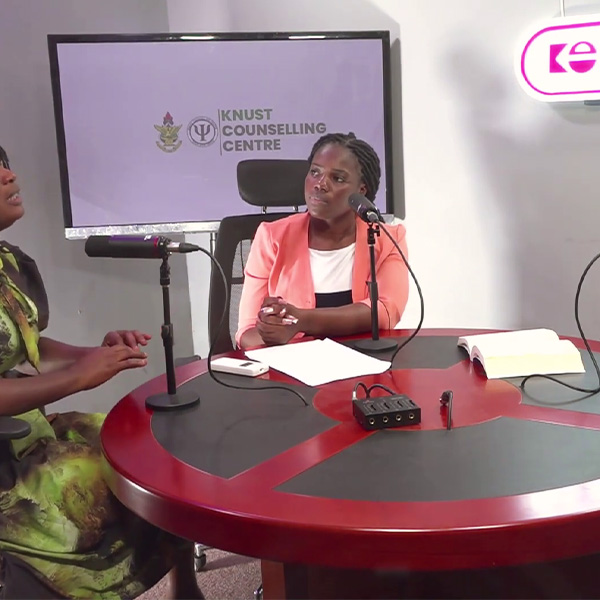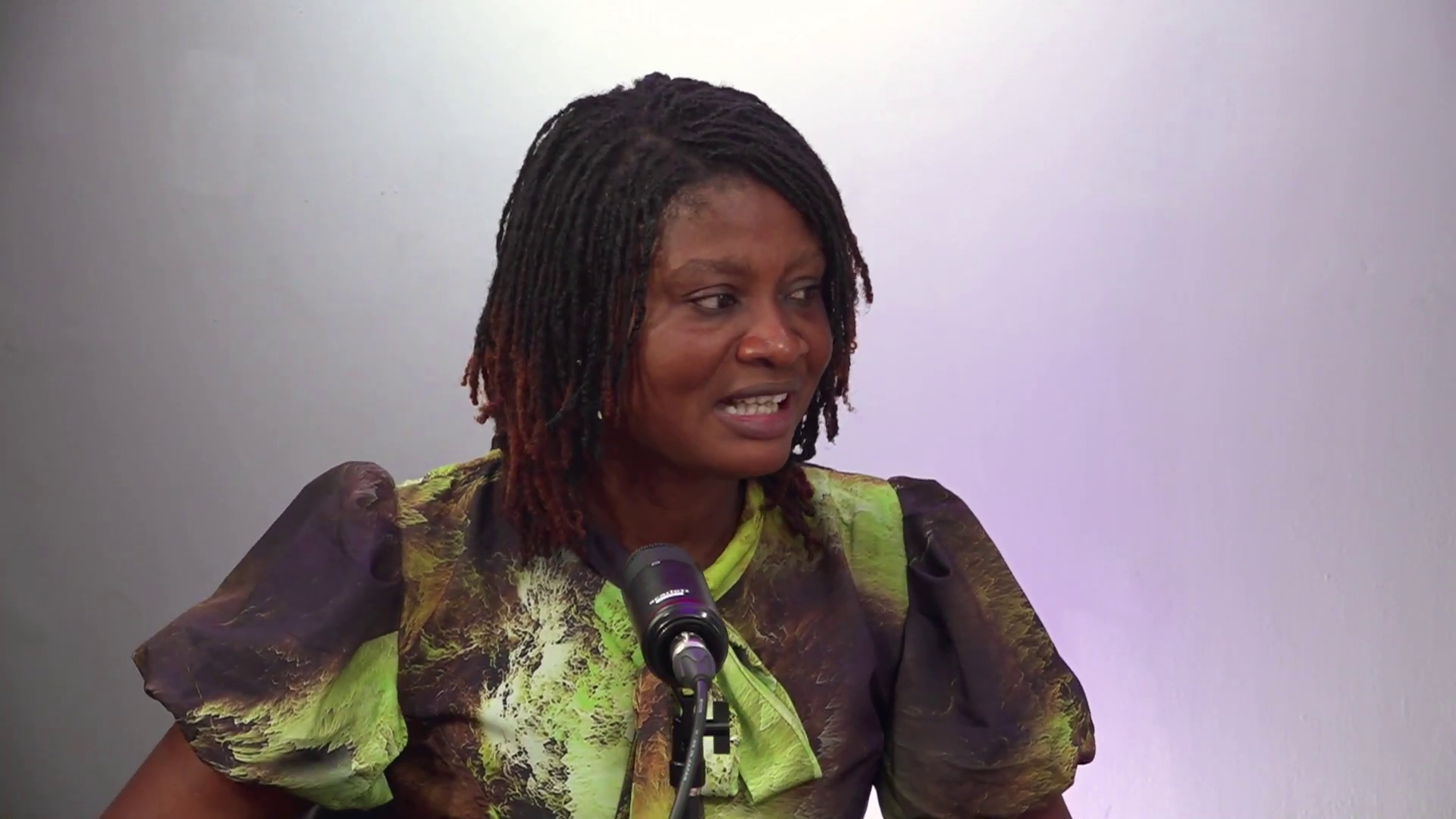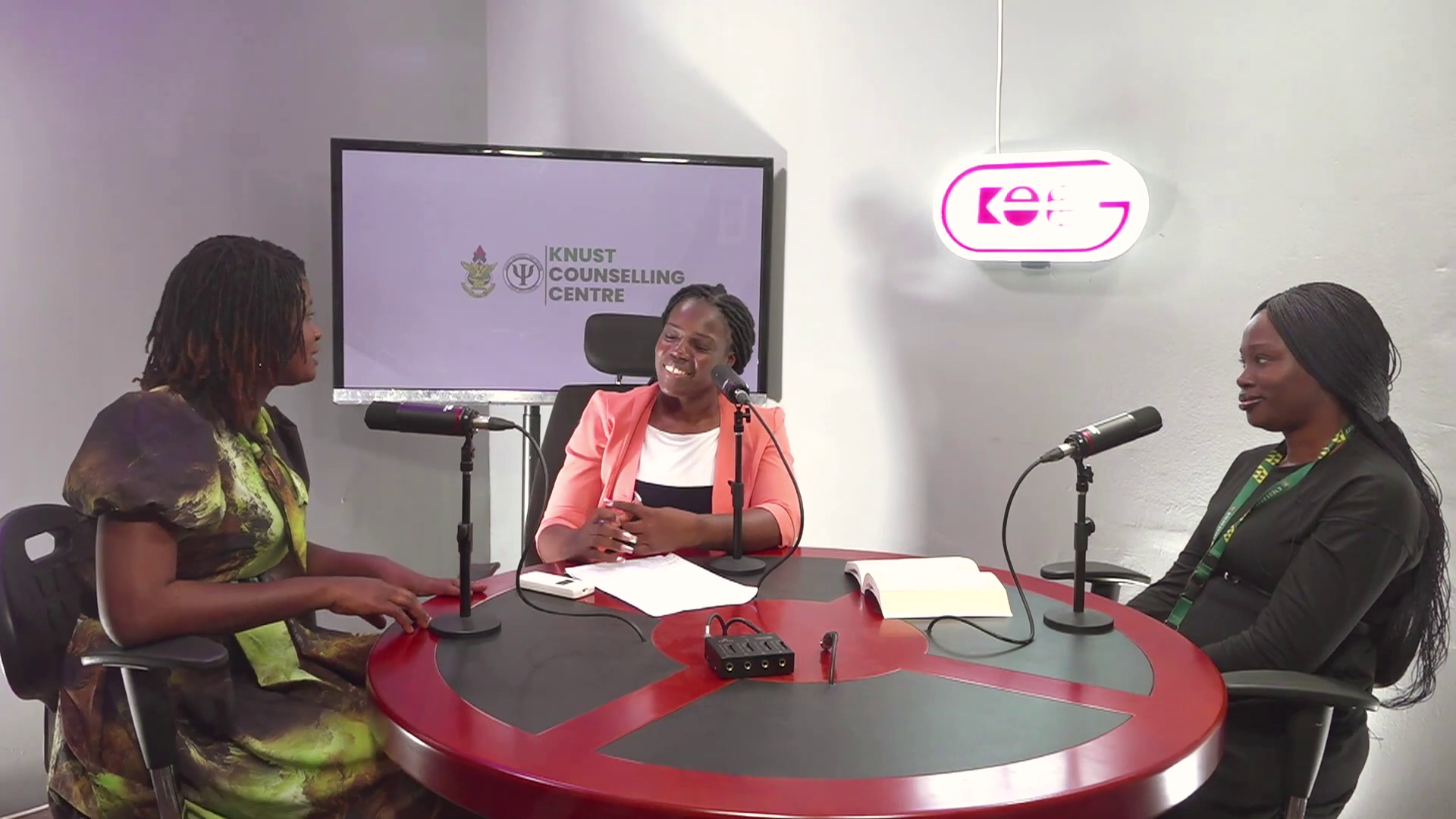E-Podcast Counseling Session: Addressing Suicide

To shed light on the sensitive and critical topic of suicide, the KNUST E-Learning Centre and the KNUST Counselling Centre organized an E-Counselling Session on the topic of suicide. The aim was to provide information, guidance, and hope to those who may be struggling or have concerns about suicide. The e-podcast counseling session was moderated by Miss Esinam Sosu-Dees, and the discussants were Dr. Mrs. Elizabeth Sarfo Fordjour, a counsellor, and Ms. Akua Afriyie Addae, a senior clinical psychologist, both from the KNUST Counselling Centre. The session began by acknowledging the gravity and sensitivity of the topic. It emphasized the importance of approaching the issue with compassion, empathy, and a non-judgmental attitude. Ms. Akua Afriyie started with a clear definition of suicide, emphasizing that it involves intentionally taking one's own life. She stressed that suicide on its own is not a disease, but suicidal thoughts and behaviors are often a result of underlying mental health challenges, such as depression, anxiety, or other psychological and psychosocial issues.

Dr. Mrs. Elizabeth Sarfo Fordjour also talked about recognizing warning signs. The podcast discussed common warning signs and red flags that may indicate someone has suicidal tendencies. These signs include withdrawal from social activities, sudden changes in behavior, talking about death, or self-harm. Ms. Afriyie also chipped in with giving away belongings and expressing feelings of hopelessness. They emphasized that recognizing these signs is crucial in offering help and support. They also highlighted the importance of active listening and effective communication when addressing suicide. Listeners were encouraged to create a safe and non-judgmental space for individuals to express their feelings openly, and acknowledge what the person is going through. “Always make sure there is confidentiality and establish trust”, Ms. Afriyie said. She also stressed the value of empathy, understanding, and validation while avoiding offering solutions or minimizing their experiences.

Professional assistance is crucial when dealing with suicidal thoughts or supporting someone who is struggling, Ms. Afriyie said. She emphasized the significance of encouraging individuals to seek help from mental health professionals. When asked what KNUST and the KNUST Counselling Centre were doing to reduce the rate of suicide amongst students on campus, she mentioned efforts made by the KCC to reach more students. These included seminars and events on mental health and well-being. She implored student leaders, including the SRC and College executives, to help them reach the student populace. She also urged students to visit the centre. “Trust us to give you the best”, she said. Dr. Mrs. Elizabeth Sarfo Fordjour provided information about suicide hotlines and helplines where people can find immediate assistance and guidance. To reach the KNUST Counselling Centre, contact any of the numbers: 0507497265, 0548534318, or 0507497153.
Closing the session, Miss Esinam Sosu-Dees asked for their last words. Dr. Mrs. Elizabeth Sarfo Fordjour’s last words for the session were, “Suicide is real”, and Ms. Akua Afriyie ended with, “When someone is talking about committing suicide, let us not think that they will not do it. Always make sure you are listening and not judging.” Fostering understanding, active listening, and empathy, the podcast encouraged individuals to seek help and support when facing suicidal thoughts. It emphasized the importance of open conversations, destigmatizing mental health, and building a community that promotes well-being and mental health awareness. Remember, if you or someone you know is struggling with suicidal thoughts or mental health challenges, please reach out to a mental health professional or a helpline on campus. You are not alone, and help is available.

Published:08th August 2023 Source: KNUST E-Learning Centre
